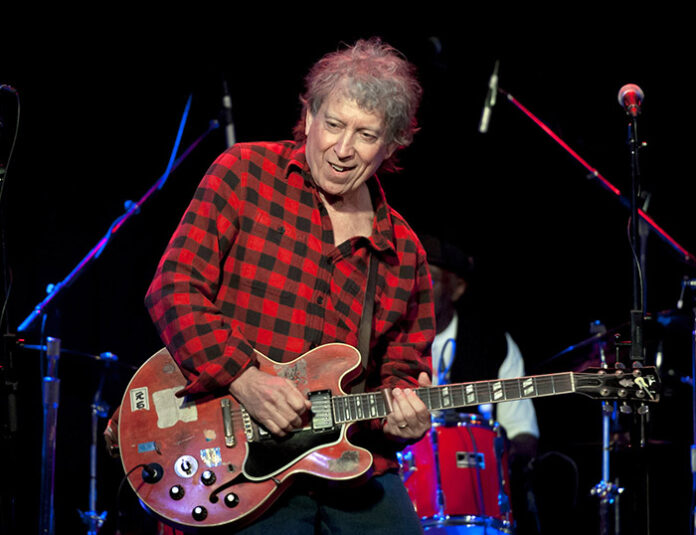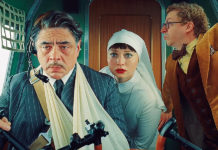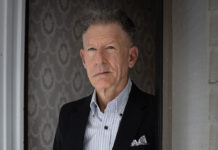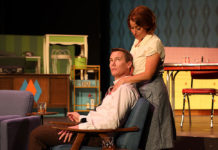
The blues is many things—nothing but a bad dream, the devil’s music, a good man feeling bad and “the weirdest music I ever heard,” according to WC Handy.
But the blues can also be a good time, and that’s the path that Elvin Bishop has chosen to follow. His concerts are legendary big fun, filled with his humor and easy nature, in addition to his virtuoso guitar playing, often featuring Bishop in overalls and a checked Pendleton. He’ll bring it all to the Raven on Friday night, Dec. 2.
When Bishop brings it all, there’s a lot to bring. When he came to Chicago in the early 1960s from Oklahoma, he was no musician, but a college freshman. In a recent phone conversation, Bishop remembered listening to the radio during his high school years in Tulsa. “This is about the only way white people are going to hear blues in Oklahoma—this is way back before civil rights, you know. I heard it on WLAC in Nashville; they played the good stuff, and I just went crazy for it.”
Bishop was a smart kid, and made good use of it. “I got a National Merit Scholarship; as far back as the eye could see, the Bishops were farmers, you know, so that education was the big thing, you know?” he drawled of his college career.
At least, he confessed, “That was my cover story.” He enrolled at the University of Chicago, in the Hyde Park area, with its lively cultural scene, and there Bishop met harmonica player Paul Butterfield and other blues musicians, including Charlie Musselwhite (with whom he recorded the Grammy-nominated “100 Years of Blues” in 2020).
“The only way white people were going to hear blues in the early ’60s was to go to a folk festival, unless they were willing to go to a club in the Black ghetto, and very few were,” said Bishop. “The folk festivals always had one token blues artist. Blues was considered a small department of folk music. You’d have Sonny Terry and Brownie McGhee, or Josh White, one of those guys.”
Butterfield and Bishop began to get gigs at Big John’s blues club in North Chicago. Joined by bassist Jerome Arnold and drummer Sam Lay, they became known as the Paul Butterfield Blues Band in 1963.
Mike Bloomfield at first just sat in with the group, but by the time they recorded their second album he had fully taken over the lead guitar seat. “It ended up being a real good thing,” said Bishop. “He was way ahead of me as far as development as a player…He had a lot of stuff covered.”
In the summer of 1965, the Butterfield Blues Band with Bloomfield backed Bob Dylan’s first electric set at the Newport Folk Festival—though Bishop admits he missed the show, being at another stage “hanging out with some blues guys, Mance Lipscomb and Mississippi John Hurt.”
Later that year, their first album was released, and the Paul Butterfield Blues Band became one of the driving forces of the Chicago Blues revival of 1960. Canned Heat, John Mayall and the Bluesbreakers, the Blues Project and the Steve Miller Blues Band all followed through the door they had opened.
Bishop rode with the band through three albums, but by 1969 both Bishop and Bloomfield were gone when Butterfield Blues Band played at Woodstock. Bishop had left to form his own blues band, and the big hall venues of Bill Graham well suited his rambunctious, entertaining brand of blues. He played with the Allman Brothers, the Grateful Dead and others at both Fillmore East and West, delivering the blues message with a nod and a wink.
“I know what I’m supposed to be doing. I’m supposed to be making people feel good,” said Bishop. “That’s pretty much my aim. I naturally gravitate in that direction—I’m a half-full as opposed to half-empty kind of guy.”
Then his career took a surprising turn—one which landed him on Wikipedia’s list of One-Hit Wonders of the 1970s. “Fooled Around and Fell in Love” was released in 1975, and suddenly the Elvin Bishop Band found themselves unexpectedly in the Top Ten. Though it was Bishop’s song, and album, there was a catch: “Mickey Thomas sang it much better; he’s got a great voice, and he’s a great singer.”
The song reached #3 on national Billboard charts. Thomas soon left to join Starship, so he did ok too.
Bishop continued touring and making good-natured records, like Big Fun and Red Dog Speaks—this last a rave-out with his one and only guitar, the Gibson ES-345 he calls Red Dog. He picked it up in the Chicago years, trading his Telecaster for the hollow-body Gibson, and never looked back. “I don’t take it on the road anymore,” he said. “It got to be too valuable to trust the airlines with it.”
Bishop has played in almost every configuration of blues band—the four- or five-man stage show, with or without horns, duetting with Little Smokey Smothers. Another favorite configuration is the trio—the Big Fun Trio, in fact, the group he’ll be playing two sets with at the Raven.
With Bishop on guitar and vocals, Willy Jordan on cajon and vocals, and Bob Welsh on guitar and piano, the trio “forges a new blues and R&B sensibility, colored by the distinctive, stripped-down instrumentation and shot through with Elvin’s exuberant, down home vibe,” as Rhythm & Blues magazine so ably put it.
Bishop’s music, like his influences, is eclectic: a little New Orleans, a bit of Memphis, a lot of Chicago. “Well, I’ve listened to a lot of blues and I love it all,” he said. When asked what he’s listening to now, the legendary blues musician answered, “Well, up to last week I was listening to the World Series.”
Look for Big Fun at the Raven on Friday, Dec. 2. And keep an eye out for Red Dog, too—it’s only an hour’s drive from West Marin, so there’s no need to worry about the airlines.
The Elvin Bishop and Big Fun Trio show begins at 7:30pm; general admission $40. The Big Fun Trio will play two sets; there is no opening act.








